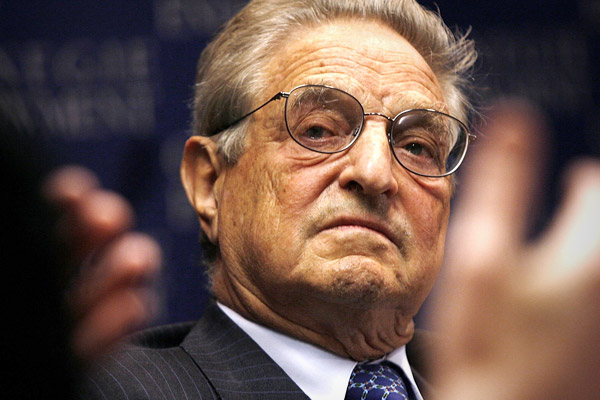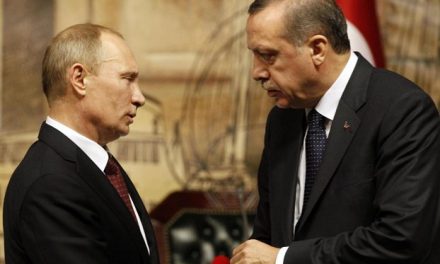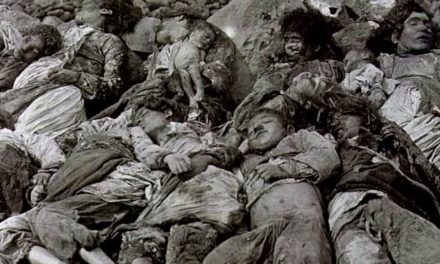By Helena Smith, The Guardian
Financier to open health and legal help centres across Greece in absence of public welfare as country struggles with debt
George Soros has extended his financial support for Greece by establishing the first in a series of "solidarity centres" for those worst-hit by the country's economic crisis.
The opening of the centre in the northern city of Thessaloniki comes as ever more Greeks are forced to turn to charities for help.
"Greece, to a great degree, has become a failed state," said Aliki Mouriki, a sociologist at the National Centre for Social Research. "It is unable to provide basic facilities for its citizens because of budget cuts," she said. "In the absence of public welfare, and with around one and a half million officially unemployed, growing numbers are looking for substitutes elsewhere."
The centre – a hub for NGOs offering health care and legal counsel – has been deluged with requests only days after opening its doors.
Soros committed $1m for heating oil last year after local mayors, unable to heat schools, appealed for help. Among them was Tassos Karabatos, mayor of Naoussa, also in northern Greece, who turned to the US investor after taking the unprecedented step of shutting down all 54 schools in his municipality when he saw that oil tanks were running dry.
"They were closed for a day. It was a desperate step but I had been pleading for help, without effect, for months," he lamented. "It had got to the point where some of the schools had not a drop of oil left. This month we got 20,000 tonnes from Soros and it has really helped. The government has now promised an extra four million euros but we have yet to see it."
With unemployment nudging a record 28% and the vast majority of jobless out of work for more than a year, growing numbers of people have lost monthly benefit payments and health insurance, leaving them at the mercy of charities and local municipalities.
"Around three million Greeks now have no access of any kind to public health," said Mouriki. "It's a time bomb waiting to explode."
Greek schools, like hospitals, have seen their operating budgets slashed by 60% since the crisis began. Last week officials said applications for food assistance had also soared, amid mounting evidence of malnutrition among schoolchildren in inner city areas.
Essentials are in such short supply that bus services for children were abruptly suspended last autumn when bankrupt local authorities announced they could no longer afford them. For almost two months pupils in remote villages were forced to walk to schools if their parents lacked the means to take them.
Soros, who wants to set up solidarity centres nationwide, has provided support for heating oil to some 190 institutions – including orphanages, nurseries, schools and old peoples' homes – across Greece.
But his support is not without controversy. The financier's motives have raised suspicion, with school parents' associations refusing to endorse donations for heating oil, prompting a furious riposte from Thessaloniki's mayor Yiannis Boutaris last week. "Why Soros gives money to Thessaloniki or other Greek regions, or even to NGOs to help vulnerable groups, should not be the centre of attention," he said, inaugurating the centre. "It is the fact that Greek tycoons, shipowners and those from the diaspora … don't follow his example."
Mouriki said with the country grappling with its worst recession in modern times, the lack of philanthropy exhibited by Greece's financial elite had been startling. "It's a terrible fact," she sighed, "that they prefer to buy pieces of art to enrich their private collections or conduct expensive trips abroad than help those in need. The lack of compassion has been really extraordinary."
At more than €350bn – or 175% of GDP – Greece's gargantuan debt load lies at the root of its financial woes. Increasingly, many believe that recovery will only come with a massive debt write-down, a prospect staunchly repelled by Germany, which has bankrolled over 25% of the country's bailout to date.
"Everyone knows that Greece can never pay back its debt," says Soros. "If the official sector could forgo repayment," he added, referring to the fact that much of the debt is now held by European governments, "private capital would return and Greece could rapidly recover."



















